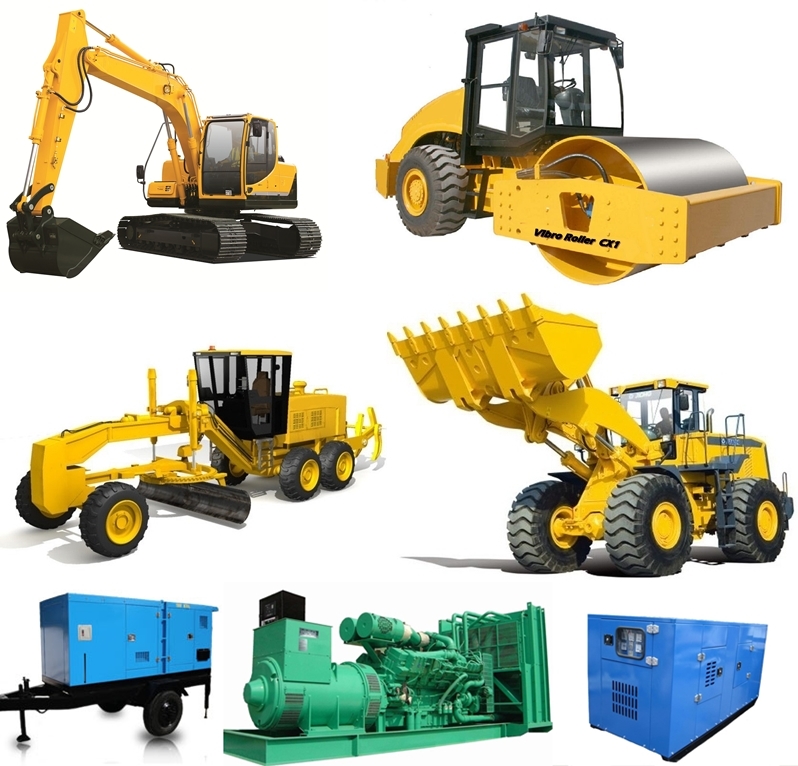Maximize Your Spending Plan by Recognizing the Expenses Connected With Construction Equipment Leasings
Comprehending the complete scope of expenses connected with building and construction devices leasings is essential for optimizing your budget. What techniques can be used to effectively manage these expenses and make sure a more effective rental experience?
Summary of Rental Costs
When taking into consideration building devices rentals, understanding the connected expenses is paramount for reliable budgeting and job preparation. Rental costs can differ considerably based upon numerous elements, consisting of equipment type, period of rental, and place. The first rental fee commonly reflects the devices's market need and its linked operational abilities, affecting the overall cost.
Along with the base rental rate, supplementary prices may occur, such as transport costs, fuel surcharges, and maintenance costs. It is important to represent these extra expenditures to accurately evaluate the overall expense of renting out tools. Furthermore, the rental period can affect prices; longer services might get discounted rates, while short-term services could incur higher daily fees.

Break Down of Rental Rates
A comprehensive understanding of rental prices is essential for service providers and task supervisors aiming to optimize their budgets. Rental prices for building and construction devices usually include several parts, consisting of base rates, time-based charges, and use charges.
Base rates are the core charges associated with the rental of the equipment, often established by the kind and size of the machinery. These prices can vary substantially, influenced by aspects such as devices demand, availability, and regional market fads. Time-based costs, which might be daily, weekly, or monthly, offer to accommodate different task timelines and rental periods.
Additionally, rental rates might include use charges, which apply when equipment is made use of beyond a defined threshold, ensuring that the rental business can account for deterioration. Seasonal demand variations can likewise influence rental rates, with peak construction seasons commonly regulating higher rates.
Furthermore, recognizing the rental business's plans concerning upkeep and insurance coverage can supply further insight into the overall expense framework. By analyzing these components, specialists can make enlightened decisions, making sure the selection of rental equipment lines up with both task requirements and budget plan restrictions.
Extra Charges to Take Into Consideration
Recognizing the intricacies of additional fees is essential for professionals to manage their general leasing costs properly. Past the typical rental prices, various additional fees can considerably affect the overall cost of equipment rental. These fees often include delivery and pick-up costs, which can differ based upon distance and logistics associated with delivering the tools to and from the task website.
In addition, some rental firms may impose fuel surcharges if the tools is returned with much less gas than when leased. It is likewise necessary to recognize prospective cleaning fees, particularly for specialized equipment that requires detailed upkeep after usage.

Thoroughly reviewing the rental arrangement and clarifying these added charges ahead of time can aid professionals make certain and stay clear of unexpected expenses that budgets continue to be intact throughout the job lifecycle.
Repair And Maintenance Expenses
Routine repair and maintenance expenditures are usually neglected Check This Out variables that can considerably affect the overall expense of construction tools rentals. When renting out equipment, it is crucial to think about not only the rental charges yet additionally the prospective prices connected with maintaining the machinery in optimum operating condition.
Several rental business consist of fundamental upkeep as component of the rental contract; however, extra extensive repair services or unanticipated break downs can cause added expenses. It's important to examine the rental contract thoroughly to comprehend what upkeep solutions are covered and what duties drop on the renter.
Furthermore, equipment that is not well-kept can result in ineffectiveness on the work website, possibly increasing and causing delays project costs. To reduce these dangers, it is recommended to carry out routine assessments and keep open interaction with the rental provider regarding any issues that arise during use.
Insurance Coverage and Responsibility Costs
Insurance coverage and responsibility prices are important elements that can considerably influence the total expense of construction tools rentals (construction equipment rentals). These costs ensure that both the rental firm and the client are shielded from possible financial losses developing from mishaps, damage, or theft during the rental duration

Additionally, customers need to recognize any kind of deductibles or exclusions in the insurance policy, as these can influence potential out-of-pocket costs. Recognizing the terms and conditions of any type of insurance policy coverage is important to stay clear of unexpected expenses. Inevitably, budgeting for insurance and liability expenditures can aid guarantee a smoother rental experience and protect against economic threats related to building tasks.
Verdict
In final thought, a detailed understanding of the expenses associated with building equipment leasings is crucial for reliable budget monitoring. Eventually, notified decision-making relating to equipment services adds to the overall success of building and construction ventures.
Rental expenses can differ dramatically based on a number of elements, consisting of devices type, duration of leasing, and location (mini excavator rental). The rental period can influence pricing; longer leasings may certify for reduced prices, while short-term services might sustain higher day-to-day fees
By performing extensive research and engaging with reliable rental firms, professionals can efficiently browse the intricacies of rental pricing, inevitably optimizing their monetary sources.
Past the conventional rental rates, various extra charges can considerably affect the complete cost of devices service. Rental companies typically give obligation insurance policy that covers injuries to third celebrations or damages to residential or commercial property, while devices damages insurance policy can cover the expense of repairs or replacement if the leased devices is harmed.